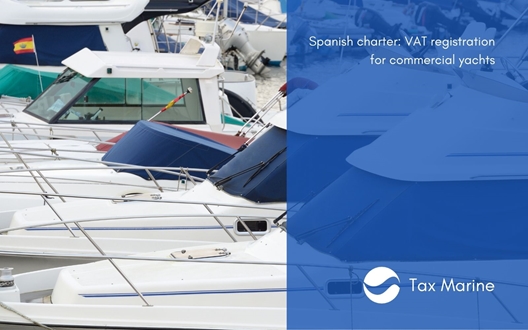From a tax standpoint, charter yachts are considered a hiring of Means of Transport, which is a service for VAT purposes. The VAT treatment depends on a number of factors including the period of time for which the Means of Transport is hired, the VAT status and location of the customer, and -in certain cases- where the Means of Transport will be used and enjoyed.
Under the VAT place of supply regulations laid down in the EU VAT Directive 2008/8/EC, the place of supply of short-term hiring of a means of transport shall be the place where the means of transport is actually made available to the customer. Short-term shall mean the continuous possession or use of vessels for not more than ninety days.
In the particular case of Spain, the above provision is laid down in article 70.One.9 of the VAT law 37/1992.
Who is required to register for Spanish VAT?
- Spanish entities will be required to register and account for Spanish VAT
- The cases where a non-Spanish entity must compulsorily register are:
- If it has permanent establishment in Spain
- If it is the taxable person of a transaction in Spain (the entity liable to collect the tax), even if it does not have a VAT permanent establishment in Spain
There is no VAT registration threshold for non-resident companies providing taxable supplies in Spain. A fiscal representative is required for non-EU companies. Since 2004, EU countries are no longer permitted to require for other EU companies to appoint a VAT fiscal representative for the purposes of VAT. However, Spain has been slow to adopt this requirement, and in fact still obliges companies to have a fiscal representative, who shares the client’s tax liability.
VAT registration process
On submission of all the required documents at a local tax office in Spain, your company’s Spanish tax/ VAT number is issued immediately.
Documents required for registration are as follows:
Documents required for registration are as follows:
1. A certificate produced by the Companies Registry in the country where the company was incorporated. This document should state the registered address of the company and a list of directors.
2. Notarized representation documents: a Power of Attorney to your Spanish representatives in order to obtain your company’s Spanish tax code on your behalf and to represent you in future communications with the Spanish tax authorities.
All these documents must be legalized in your country with the Hague Apostille and then translated into Spanish by a sworn translator.
You can also read similar publications in our Knowledge Bank.






